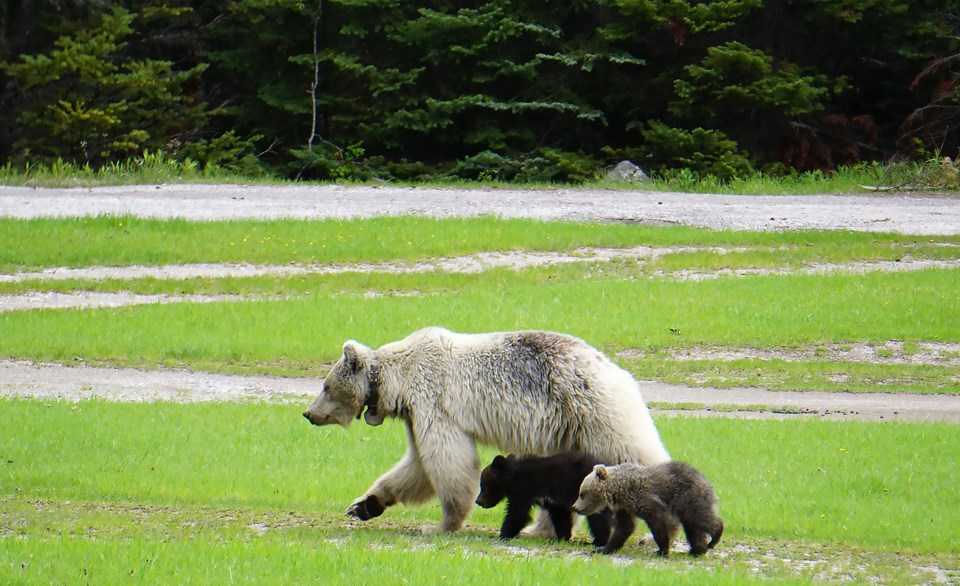FIELD, B.C. – Another grizzly bear has been struck and killed on the Trans-Canada Highway in Yoho National Park, within days of a rare white female grizzly bear and her two newborn cubs tragically meeting the same fate.
According to Parks Canada, the older male grizzly was struck along an unfenced section of the highway near Field, B.C., at approximately midnight on Sunday (June 9).
“Parks Canada’s wildlife management team responded and confirmed that an older male grizzly bear was deceased,” said James Eastham, public relations and communications officer for Lake Louise, Yoho and Kootenay field unit, in an email statement.
“Parks Canada does not have additional information on this bear as it was previously unknown to us.”
This is the fourth grizzly bear mortality in Yoho National Park this year.
On Thursday (June 6) at about 4 p.m., the white grizzly bear – bear No. 178 and nicknamed Nakoda – was struck on the Trans-Canada Highway between Wapta Lake and the Lake O’Hara turnoff – less than 12 hours after her newborn cubs were killed on the same stretch of highway.
That section is a 90 kilometre-per-hour zone and she had penetrated a weakness in the hot-wired wildlife exclusion fence to feast on dandelions.
The famed bear limped away and was hunkered down in the forest. She was found dead on Saturday (June 8) after her GPS collar let off a mortality signal.
Bear 178 first showed up by the highway in Yoho National Park several years ago with her female sibling, a light-brown coloured bear that was run over and killed on the highway near the Lake O’Hara turnoff in early 2022.
That same year, bear 178 was fitted with a GPS collar to help the wildlife management team monitor her movements and respond when she was by the highway.
She had been relocated three times to an area within her home range in Yoho National Park to encourage her to spend time away from the highway – but she kept coming back.
This year she showed up by the Trans-Canada on May 23 with her first litter of cubs, prompting the mandatory no-stopping zone and reduced speed limits.
She ventured off to the backcountry a day or two later but returned to the area of the busy highway June 5.
Eastham said Parks Canada takes the protection of wildlife very seriously and works hard to reduce human-caused wildlife mortality.
He said visitors are asked to respect posted speed limits and no-stopping zones at all times, as well as stay alert and prepared to encounter wildlife at any time, even when driving along fenced sections of the highway.
“By reducing speeds, driving alertly, and giving wildlife space and respect, you can help reduce wildlife mortality,” said Eastham.




